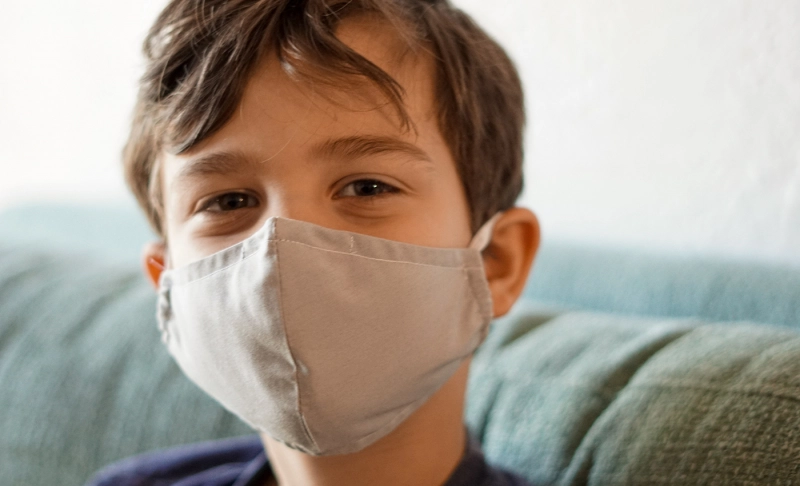By: Annet Preethi Furtado
January 11 2022
Unverifiable: The use of face masks has a negative impact on a child's development.

The Verdict Unverifiable
While masks are required to protect against COVID-19, it is unknown whether their usage among children affects a child's development.
While masks are required to protect against COVID-19, it is unknown whether their usage among children affects a child's development. As schools reopened following the lockdowns, face masks became vital parts of children's back-to-school essentials. There is no scientific definition or recommendation on the age limit for using masks by children, as there have been relatively few studies investigating the effect of the mask on a child's development. The ones that have been conducted or ongoing are not conclusive enough to come to a concession. The Centers for Disease Control and Prevention states that all children aged two and above and employees/teachers should wear masks inside schools, regardless of vaccination status. Whereas, World Health Organization advises against masking children aged five and below. It also states that the decision to use masks for children aged six to eleven should consider various factors, including the "potential impact of wearing a mask on learning and psychosocial development." According to a preliminary study published in August 2021 titled "Impact of the COVID-19 Pandemic on Early Child Cognitive Development: Initial Findings in a Longitudinal Observational Study of Child Health,'' children born during the pandemic in the U.S. have lower verbal, motor, and total cognitive performance than children born before the pandemic. The study collected assessments from children since 2011 and throughout the pandemic until 2021. It suggests that wearing a mask might influence several early development skills, including connection, facial processing, and social and emotional processing. But it also notes that there were no direct or parent-reported measures of parent-child contact, early press coverage, or physical activity to evaluate the factor's potential cause. The study is inconclusive and is yet to be peer-reviewed. In 2012, another study published in the peer-reviewed journal Cognition found that when children aged 3 to 10 encountered faces covered in masks, there was no impairment in categorizing the expressions. According to a peer-reviewed study published in 2020 on PLOS One website, facial coverings had a minor impact on the accuracy of inferring others' emotions, especially as children gained more visual information. However, the study's sample size was small, and it suggested that future studies were needed to investigate how wearing masks affect younger children's social interactions. Lynette Teo, who teaches childhood language and literacy development at Singapore's Ngee Ann Polytechnic, said, "Children learn through observation. They look at the movement of the mouth, and see the lips and tongue move. If you just think about the 'th' sound, the placement of the tongue is so important." Masks' impact on children's language development could be a major subject of concern. Experts believe that parents can do a lot to help their children overcome any potential obstacles, BBC reports. Except for a non-peer-reviewed study, where face masks are listed as a potential factor that could harm children's development, no research supports the claim. However, considering the scope of the problem, more comprehensive global research is needed for evidence and to develop appropriate follow-up and support methods. The National Institutes of Health (NIH) is funding research to determine whether masks and mask mandates affect children's development. NIH also notes that it is still "unknown" and "unclear" whether masks negatively impact a child's development. The COVID-19 pandemic has given rise to a lot of potentially dangerous misinformation. For reliable advice on COVID-19, including symptoms, prevention, and available treatment, please refer to the World Health Organization or your national healthcare authority.


